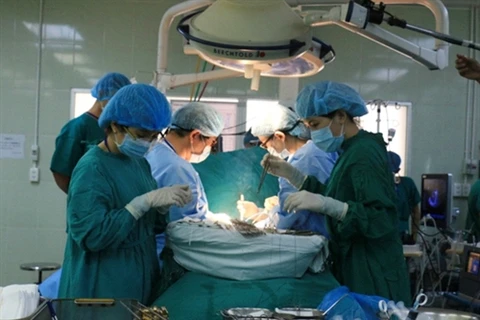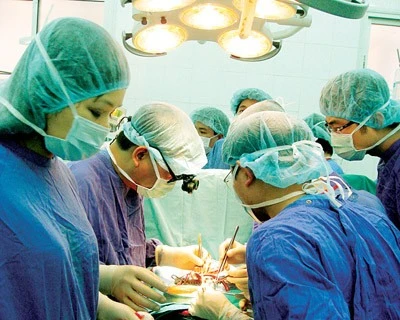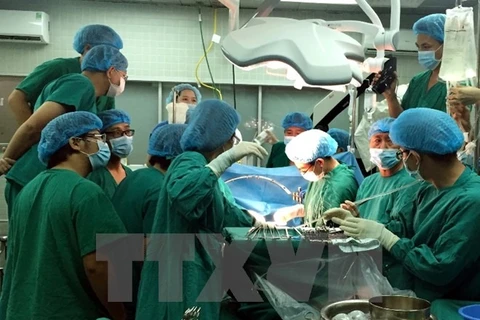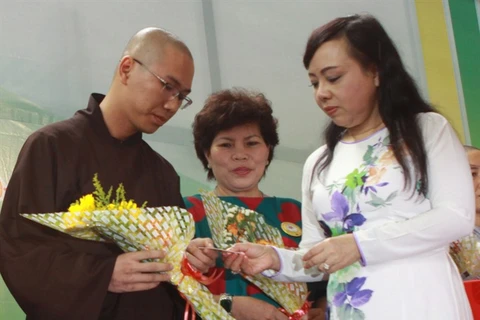 Doctors conduct a liver transplant at the Pediatrics Hospital 2 in HCM City (Photo: Pediatrics Hospital 2)
Doctors conduct a liver transplant at the Pediatrics Hospital 2 in HCM City (Photo: Pediatrics Hospital 2) Hanoi (VNA) – There are 18 hospitals qualified for organ transplantation in Vietnam at present, 25 years since the first successful kidney transplant in the country.
The information was highlighted at a meeting in Hanoi on June 2 which reviewed 25-year achievements of organ transplantation in Vietnam.
Director of the Vietnam Military Medical University Do Quyet said organ transplantation is one of the greatest medical attainments. It has become a popular and effective treatment therapy for patients with end-stage diseases.
The world’s first organ transplant was conducted in 1952, and transplantation techniques have developed strongly since then, returning the life to patients.
He said the first successfully kidney transplant in Vietnam was made at the Military Medical University on June 4, 1992, which marked the start of organ transplantation – a new speciality in the country then . After that, the country began transplanting liver in 2004, heart in 2010, kidney-pancreas in 2014, and lung in 2017.
To boost the development of organ transplantation, Vietnam needs to step up the application of new technology, open transplantation support funds, and increase doctor training, he added.
At the meeting, Chairman of the Vietnam Society of Organ Transplantation Pham Gia Khanh also underlined the transplantation accomplishments and lessons in Vietnam over the past 25 years.
Participants also looked into issues relating to organ transplantation in the country.-VNA
VNA
























